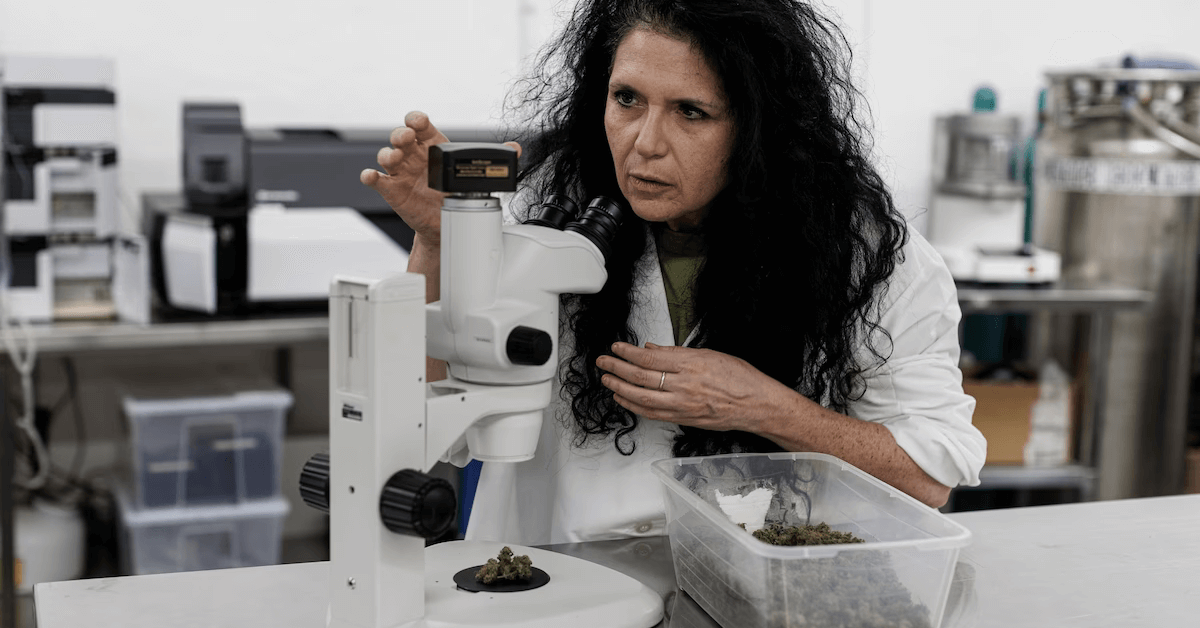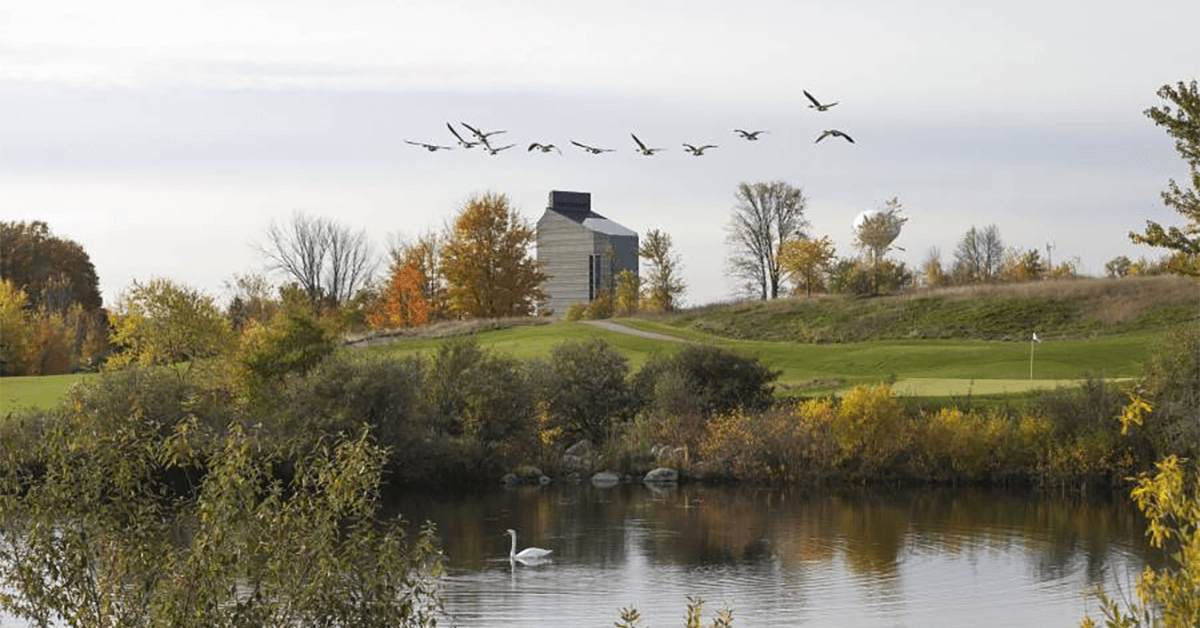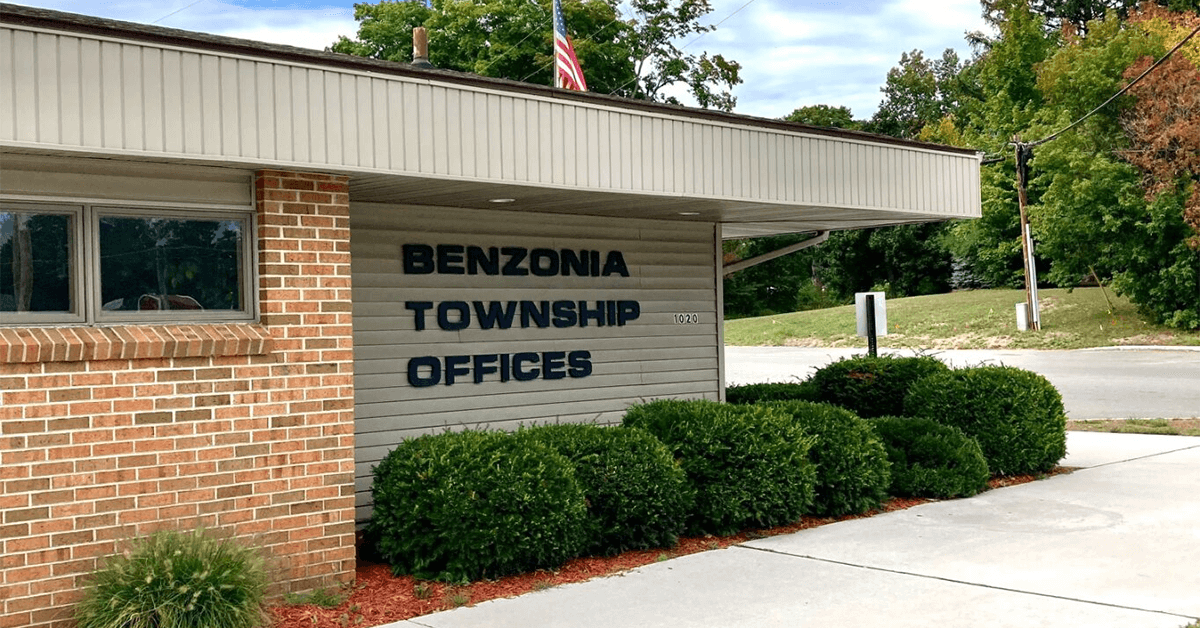The Stalled Journey of Cannabis Studies for Veterans in Michigan

In Michigan, a groundbreaking initiative was launched following the approval of recreational cannabis by voters six years ago. This initiative was not just about legalizing the substance; it carried a profound mandate aimed at harnessing cannabis tax revenue for a noble cause: researching the potential health benefits of cannabis for military veterans. With an ambitious commitment of $40 million earmarked for this purpose, the state set out to pioneer studies that could potentially transform the understanding and treatment of veterans' health issues. However, despite the passage of time and the availability of funds, the path to initiating these crucial trials has been fraught with obstacles, none more significant than the stringent federal restrictions on cannabis research.
The anticipation of breakthrough findings from these studies has been met with a stark reality: not a single trial has commenced. The primary impediment has been the federal government's stance on cannabis, which has significantly hampered research efforts. Critics and researchers alike point to the overly cautious approach of federal agencies, particularly the Food and Drug Administration (FDA), which has raised concerns about the safety of inhaling cannabis for research purposes—a common consumption method among veterans. This has resulted in a catch-22 situation where the most prevalent form of cannabis use among the target demographic for these studies is deemed too risky for scientific investigation.
The challenges extend beyond safety concerns. Securing a supply of federally approved cannabis for research has proven to be a herculean task. Due to federal laws, researchers are barred from utilizing the cannabis available in dispensaries, despite its widespread availability and use. This requirement has not only delayed the research process but has also spotlighted the complex web of regulatory hurdles that scientists must navigate to study cannabis. As Michigan's efforts to explore the health benefits of cannabis for veterans remain stalled, the situation underscores a broader national dilemma: the intricate balance between advancing scientific inquiry and adhering to federal restrictions in a landscape where cannabis legality varies significantly across states.
This introduction sets the stage for a deeper exploration of the multifaceted challenges facing cannabis research in the United States, particularly in the context of veteran health. The ensuing sections will delve into the specifics of these obstacles, the federal stance on cannabis research, the impact of legal and regulatory frameworks, and the perspectives of veterans and researchers striving to push the boundaries of what is known about cannabis and its potential medicinal benefits.
Federal Restrictions and Research Challenges
The journey to understand cannabis's potential health benefits in Michigan has encountered formidable barriers, primarily stemming from federal oversight. At the heart of these challenges is the Food and Drug Administration's (FDA) cautious stance on marijuana research, particularly concerning studies involving inhalation—a method predominantly used by veterans. A poignant example of this cautious approach is the FDA's decision to block a Michigan study aimed at investigating cannabis's effects on post-traumatic stress disorder (PTSD). The federal agency raised concerns about the safety of participants inhaling cannabis, despite inhalation being a common method of consumption among the veteran population the study aimed to benefit.
The hurdles for researchers extend beyond the initial approval process. Securing a supply of cannabis that meets federal standards for research has proven to be an arduous and time-consuming endeavor. Unlike the cannabis readily available in dispensaries across Michigan, research-grade cannabis must be obtained through federally approved sources. This requirement significantly delays the start of studies, as researchers navigate the complex process of acquiring the necessary approvals and securing a supply of cannabis that meets the stringent criteria set by federal authorities.
The delay in securing a federally approved marijuana supply is not an isolated incident but part of a broader pattern of challenges that researchers face due to the federal classification of marijuana. As a Schedule I controlled substance, marijuana is placed in the same category as drugs like heroin and LSD, defined by a high potential for abuse and no accepted medical use. This classification not only complicates the process of obtaining cannabis for research but also imposes a series of regulatory and bureaucratic hurdles that researchers must overcome. These include submitting detailed research protocols, obtaining approval from the Drug Enforcement Administration (DEA) to handle Schedule I substances, and adhering to strict security measures for storing and accounting for cannabis used in studies.
The predicament faced by Michigan researchers illuminates the broader difficulties of conducting cannabis research in the United States. While the state-level legalization of cannabis for medical and recreational purposes has progressed significantly, federal restrictions remain a significant barrier to exploring its health benefits and potential risks. This gap between state and federal policy not only impedes scientific inquiry but also leaves critical questions about cannabis's efficacy and safety unanswered, particularly for populations like military veterans seeking alternative treatments for conditions such as PTSD.
Impact of Federal Policy on Research
The complex landscape of cannabis research in the United States is significantly shaped by its federal classification as a Schedule I controlled substance. This designation places cannabis in a category reserved for drugs considered to have a high potential for abuse and no recognized medical value, alongside substances like heroin and LSD. This classification has historically erected formidable barriers to research, hindering the exploration of cannabis's potential therapeutic benefits and its implications for public health.
The tension between federal restrictions and the growing acceptance of cannabis at the state level is a central theme in the struggle to advance cannabis research. Despite the legalization of medical cannabis in thirty-eight states and the District of Columbia, and recreational cannabis in twenty-four states and D.C., the federal government's stance has remained relatively unchanged. This disparity has created a legal and regulatory quagmire for researchers, who must navigate a labyrinth of bureaucratic hurdles to study a substance that millions of Americans legally consume.
In a significant development, President Joe Biden directed the Department of Health and Human Services (HHS) in 2022 to review whether cannabis should remain classified as Schedule I. This move signaled a potential shift in federal policy, reflecting a growing recognition of the need to reassess the legal status of cannabis in light of its widespread use and the burgeoning body of research suggesting its medical potential. The health agency's subsequent recommendation to the Drug Enforcement Administration (DEA) to reclassify cannabis as a Schedule III substance, which includes medications like ketamine and testosterone, marks a pivotal moment in the long-standing debate over cannabis policy.
The recommendation for reclassification is based on a scientific analysis conducted by the FDA, made public in January. This analysis represents a critical step toward potentially easing some of the regulatory constraints that have stifled cannabis research for decades. However, researchers and advocates remain cautious, aware that the DEA's decision on reclassification, expected in the coming months, will be the true determinant of the future landscape of cannabis research. The possibility of reclassification offers hope for a more conducive environment for scientific inquiry but also raises questions about the extent to which it will alleviate the longstanding challenges faced by researchers.
The ongoing debate over the federal classification of cannabis underscores the broader conflict between scientific exploration and regulatory caution. As researchers push against the boundaries of federal restrictions in their quest to unlock the therapeutic potential of cannabis, the ultimate resolution of this conflict will have profound implications for public health, policy, and the millions of Americans who use cannabis for medicinal and recreational purposes.
Research Infrastructure and Legal Hurdles
The infrastructure supporting cannabis research in the United States is marked by a complex interplay of legal and regulatory hurdles, deeply influenced by the plant's status as a Schedule I controlled substance. This classification underlines a significant paradox: while cannabis is increasingly recognized for its potential medical benefits and is legally available in many states, federal restrictions impose a stringent framework that researchers must navigate to study its effects.
One of the most critical challenges in this landscape is the stringent regulatory process overseen by the Drug Enforcement Administration (DEA). Researchers aiming to study cannabis must navigate a meticulous approval process, submitting detailed research protocols and obtaining a DEA license specifically for Schedule I drugs. This process is not only time-consuming but also imposes rigorous security requirements, including the need for researchers to account meticulously for every milligram of cannabis used in their studies. Such regulations reflect the federal government's caution but often act as a deterrent to the pace and scope of research, limiting scientists' ability to explore cannabis's therapeutic potential comprehensively.
For decades, the University of Mississippi held the sole federal contract to grow cannabis for research purposes, a monopoly that has been criticized for producing cannabis that many researchers claim does not reflect the potency or variety of products available in the commercial market. This discrepancy has raised concerns about the applicability of research findings to the broader population using cannabis for medical or recreational purposes. Recognizing these limitations, the DEA has, in recent years, authorized additional cultivators to provide a more diverse and representative supply of cannabis for scientific study. This move towards diversification is a step forward, yet the process remains encumbered by the overarching legal restrictions that govern cannabis research.
The Medical Marijuana and Cannabidiol Research Expansion Act, signed by President Biden in 2022, was intended to streamline the approval process for cannabis research. However, legal experts argue that, despite its intentions, the act may inadvertently perpetuate the existing barriers to cannabis research by solidifying the regulatory framework that has historically constrained scientific exploration. Critics, like Shane Pennington, a D.C. attorney specializing in regulatory issues involving controlled substances, suggest that the act makes cannabis research more challenging than ever by embedding the "backward, anti-science regime" into the legal fabric.
The legal and regulatory challenges facing cannabis research are not just administrative obstacles; they reflect a deeper conflict between federal drug policy and the evolving understanding of cannabis's role in medicine and society. As universities and research institutions grapple with these hurdles, the quest for scientific knowledge about cannabis continues to be a test of resilience, ingenuity, and the determination to bridge the gap between federal restrictions and the realities of a society moving towards greater acceptance of cannabis.
Clinical Trials and FDA Stance
The pathway to conducting clinical trials involving cannabis is intricately tied to the Food and Drug Administration's (FDA) regulatory process, a journey fraught with both challenges and cautious optimism. The FDA's role in approving and overseeing cannabis research is pivotal, reflecting a balance between the agency's mandate to ensure safety and efficacy in medical treatments and the growing demand for scientifically sound data on cannabis's therapeutic potential.
Researchers aiming to explore the medical benefits of cannabis face a rigorous process. This includes obtaining an Investigational New Drug (IND) application approval, a prerequisite for conducting clinical trials with human participants. The process is designed to ensure that the proposed study is scientifically valid and ethically sound, with participant safety as a paramount concern. However, the FDA's historical skepticism towards botanical cannabis products has added layers of complexity to this already stringent approval process. The agency has approved synthetic cannabis-related drugs, such as Epidiolex for rare forms of epilepsy and three nausea medications derived from synthetic THC. Yet, it has not extended this approval to any products derived directly from the cannabis plant, highlighting a discernible reticence towards botanicals.
This cautious stance is partly due to concerns about the consistency and control of plant-based products compared to their synthetic counterparts. However, it has also led to frustration among researchers who argue that this skepticism hinders the exploration of whole-plant cannabis products—those used by the vast majority of cannabis consumers. The FDA's approach to cannabis research, while rooted in regulatory prudence, is often seen as not fully aligned with the realities of current cannabis use and the need for comprehensive data on its effects.
Despite these hurdles, the FDA has signaled a willingness to support robust scientific research on cannabis. The agency has noted an uptick in interest for cannabis studies, reporting a review of over 150 applications for research into cannabis and its derivatives as of November. This increase in research interest underscores the growing acknowledgment of cannabis's potential medical applications and the critical need for empirical data to inform policy and clinical practice.
Legal experts have pointed out that even if cannabis were reclassified from Schedule I, significant restrictions on research would remain under the current legislative framework. This includes the need for FDA approval of IND applications, a process that remains unchanged by potential shifts in DEA scheduling. The intricate dance between regulatory approval and scientific inquiry continues to define the landscape of cannabis research, with researchers navigating a complex web of legal, bureaucratic, and scientific challenges in their quest to uncover the plant's therapeutic potential.
The Role of Universities and Private Sector in Research
The quest to unlock the full potential of cannabis for medical and therapeutic uses often finds its most fervent champions within academic institutions and, to a lesser extent, the private sector. Universities have historically been at the forefront of cannabis research, driven by both a commitment to advancing scientific understanding and the relative freedom to explore areas that might not offer immediate commercial returns. This academic pursuit has been crucial in gradually peeling back the layers of mystery surrounding cannabis, despite the formidable legal and regulatory barriers that researchers face.
The involvement of the private sector in cannabis research, however, presents a more nuanced picture. Pharmaceutical companies typically invest heavily in the development of new drugs, a process that includes rigorous and costly clinical trials designed to meet the FDA's stringent approval criteria. Yet, when it comes to botanical cannabis—a substance that can be legally obtained in most states—the incentive for such investment diminishes. The crux of the issue lies in the unique status of cannabis: widely available for medical and recreational use in various states, yet mired in federal restrictions that complicate its study and commercialization.
Paul Armentano, the deputy director of NORML (National Organization for the Reform of Marijuana Laws), articulates a compelling question that underscores the dilemma facing the pharmaceutical industry: Why would a company allocate tens of millions, if not billions, of dollars to bring a botanical cannabis product to market for a specific medical condition when the substance is already accessible through legal state markets? This rhetorical question highlights the economic and regulatory paradoxes that dampen private sector enthusiasm for investing in cannabis research.
Despite these challenges, the FDA's analysis of existing scientific research on cannabis has yielded mixed results. While there is "some credible scientific support" for using cannabis to treat conditions such as nausea and vomiting, the agency found limited evidence to support its efficacy for epilepsy, anxiety, and PTSD. This conclusion underscores the critical need for more comprehensive research to fully understand cannabis's therapeutic potential and limitations.
As universities continue to lead the way in exploring cannabis's medical applications, the role of the private sector remains uncertain. The complexities of the regulatory landscape, combined with the practical realities of the cannabis market, suggest that academic institutions will likely remain the primary drivers of research in this field for the foreseeable future. The collaborative efforts between these institutions and their partners are vital in advancing our understanding of cannabis and harnessing its potential benefits for public health.
Analysis of Cannabis as Medicine
The investigation into cannabis as a viable medical treatment has yielded a landscape of mixed scientific findings and evolving perspectives. The Food and Drug Administration's (FDA) analysis of existing research into cannabis's medical applications reveals a nuanced picture of its potential benefits and limitations. While there is "some credible scientific support" for cannabis's efficacy in treating conditions such as nausea and vomiting, particularly related to chemotherapy, the evidence remains inconclusive for other conditions, including epilepsy, anxiety, and post-traumatic stress disorder (PTSD).
This disparity in scientific support reflects the complexities of cannabis research, where results can vary significantly based on the conditions studied, the forms of cannabis used, and the methodologies applied. The FDA's cautious stance towards the approval of cannabis plant products for medical use underscores the agency's concerns about the consistency and quality control of botanical substances. Unlike synthetic drugs, which can be manufactured to precise specifications, botanical products like cannabis can exhibit considerable variability in potency, composition, and purity.
The scrutiny of cannabis's medicinal value is further complicated by the legal and regulatory hurdles that researchers face. The classification of cannabis as a Schedule I controlled substance has historically restricted access to high-quality cannabis for research purposes, limiting the scope and depth of scientific studies. This has led to a situation where much of the evidence for cannabis's medical use comes from observational studies and patient reports rather than the gold-standard randomized controlled trials.
Despite these challenges, the push for more robust and comprehensive research into cannabis as medicine continues. The FDA's recent efforts to review and approve research applications indicate a growing recognition of the need for empirical data to inform policy, clinical practice, and patient care. However, the path to widespread acceptance and integration of cannabis into mainstream medicine remains fraught with scientific, regulatory, and societal obstacles.
Veterans and individuals suffering from a variety of ailments have been vocal about their experiences with cannabis, often citing improvements in symptoms and quality of life. Yet, the scientific community remains divided, with some researchers cautioning against the premature endorsement of cannabis for certain medical conditions without more conclusive evidence. This ongoing debate highlights the critical need for continued research, open dialogue, and a nuanced understanding of cannabis's role in healthcare, balancing potential benefits against known risks and uncertainties.
Veterans and Cannabis for PTSD Treatment
In Michigan, the conversation around cannabis research takes on a poignant dimension when considering the experiences of military veterans. Veterans like Anton Harb, who served as an Army artilleryman in Iraq, bring personal testimonies to the forefront of the debate. Harb credits cannabis with alleviating the nightmares, anxiety, and depression associated with his post-traumatic stress disorder (PTSD), setting him on a path toward healing. His story is emblematic of a larger community of veterans who advocate for cannabis as a potential treatment option, underscoring the urgent need for empirical research to evaluate its efficacy and safety.
The initiative to fund cannabis research with tax revenue from recreational cannabis sales, mandated by Michigan voters, was a direct response to such testimonies. This innovative approach aimed to channel resources toward investigating how cannabis could benefit veterans suffering from PTSD and other conditions. However, the journey to actualize this vision has been hindered by a maze of regulatory challenges and federal restrictions, illustrating the complex interplay between state initiatives and national policy.
Since 2021, Michigan's Cannabis Regulatory Agency has allocated $40 million in grants to institutions like the University of Michigan, Wayne State University, and the Multidisciplinary Association for Psychedelic Studies (MAPS) for this purpose. The FDA's approval of MAPS' first study on inhaled cannabis for veterans with PTSD marked a significant, albeit isolated, victory. The study's findings, indicating no safety concerns and significant improvements in symptoms, provided a glimmer of hope and a tangible argument for the potential benefits of cannabis for PTSD treatment.
Despite these advancements, subsequent research efforts have faced formidable obstacles. The FDA's hesitancy, based on concerns about inhalation risks and THC dosing, reflects broader regulatory apprehensions about cannabis research. This caution has stalled critical studies, leaving veterans and researchers in a state of limbo. The struggle to commence a larger trial in Michigan, despite previous success, highlights the ongoing challenges within the regulatory landscape that impact the pace and direction of cannabis research.
The state's dedication to funding these studies, coupled with the personal stories of veterans like Harb, underscores a collective aspiration to explore cannabis's therapeutic potential responsibly. Yet, the slow progress and regulatory hurdles serve as a stark reminder of the disparities between the experiences of individuals using cannabis for relief and the stringent frameworks governing its study. As Michigan endeavors to advance this research, the experiences of veterans advocating for access to cannabis underscore the importance of bridging the gap between anecdotal evidence and scientific validation, aiming to inform policy, medical practice, and the lives of those seeking alternatives for managing their symptoms.
Conclusion
The journey of cannabis research in Michigan, set against the backdrop of a growing national dialogue on cannabis legalization and its medicinal potential, highlights the intricate challenges and slow progress in understanding this complex plant. Despite the clear mandate from Michigan voters to explore cannabis's health benefits, especially for military veterans, the path has been fraught with regulatory hurdles, federal restrictions, and a profound need for empirical data to guide clinical and policy decisions.
The experiences of veterans like Anton Harb, who have found solace and therapeutic benefits in cannabis, underscore the urgency of this research. Their stories, combined with the state's commitment to funding scientific studies, reflect a broader societal shift towards acknowledging and exploring the potential medical applications of cannabis. Yet, the glacial pace of research and the stringent oversight by federal agencies such as the FDA and DEA illustrate the significant gap between anecdotal evidence and the rigorous scientific validation required to integrate cannabis into mainstream medicine fully.
As researchers, policymakers, and advocates navigate this complex landscape, the future of cannabis research hangs in a delicate balance. The potential reclassification of cannabis at the federal level could herald a new era of scientific inquiry, loosening some of the constraints that have historically hampered research efforts. However, the deep-rooted skepticism and regulatory barriers that exist today remind us that change is often incremental and fraught with challenges.
The ongoing struggle to conduct comprehensive cannabis research not only affects the veteran community but also speaks to a larger national conversation about health, healing, and the role of alternative therapies in addressing chronic conditions. The quest for knowledge about cannabis and its impact on conditions like PTSD is a testament to the broader human pursuit of understanding, a pursuit that demands patience, resilience, and a commitment to empirical rigor.
In Michigan and beyond, the story of cannabis research is still being written. It is a narrative of hope, frustration, and the relentless quest for scientific truth in the face of daunting obstacles. As this journey unfolds, the lessons learned in Michigan will undoubtedly contribute to the national discourse on cannabis, shaping the future of research, policy, and clinical practice for years to come.
Share this article:
Spotted a typo, grammatical error, or a factual inaccuracy? Let us know - we're committed to correcting errors swiftly and accurately!








 Helpful Links
Helpful Links